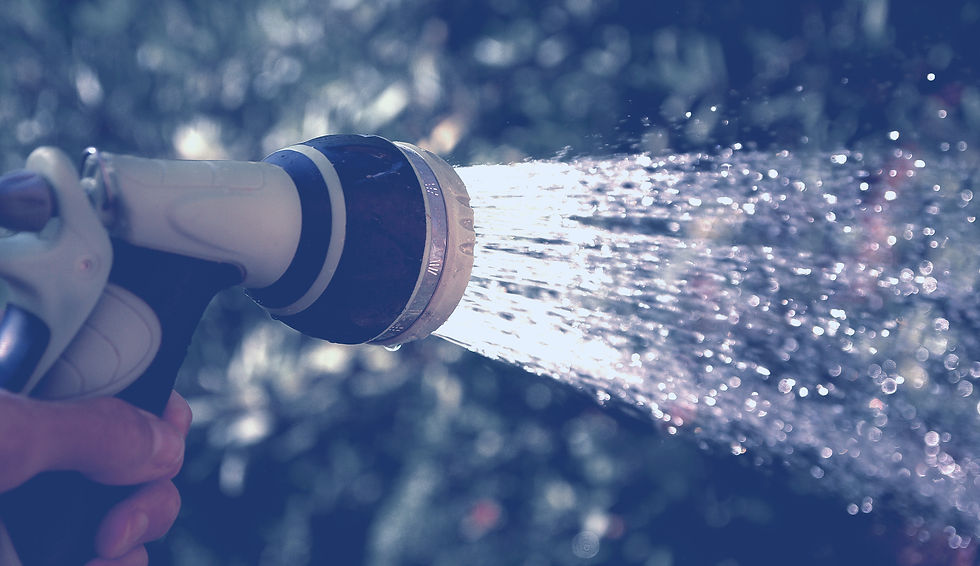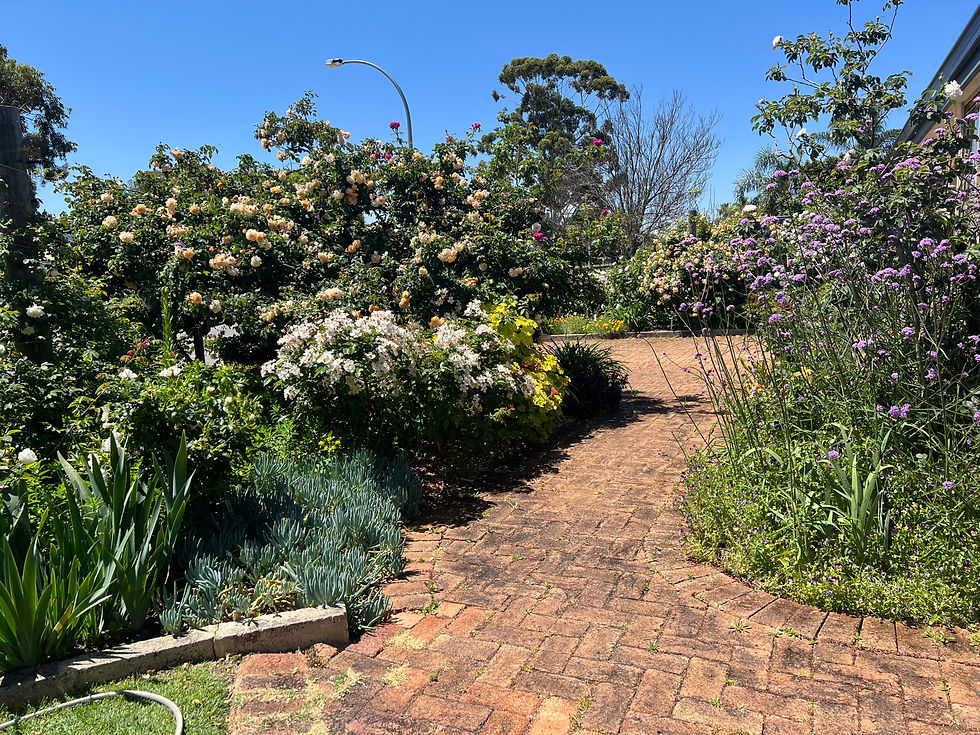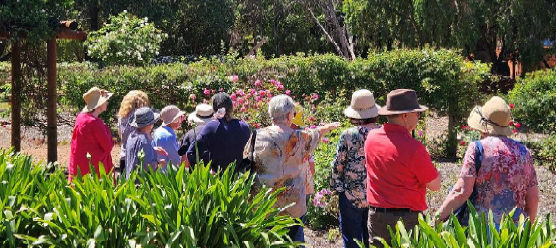Managing Your Garden in an Eco Friendly Way
- Sep 9, 2025
- 4 min read
by Jan Eastman, Chair PRHRiA
Perth Summers are harsh and we now experience many pests in our garden that attack our beautiful old roses. What can be done about this? In the past gardeners have tried to control pests by using chemical sprays which are harming the soil and the pests soon become immune to the sprays and it has little effect on them. What are the bests way to improve our gardens and still control the pests?
Soil
Keep your soil healthy. Natural products are best and the worms will love you and so will the birds that come into your garden. In Winter give your garden a feed of Seamungus, it is packed full of goodness and is a soil and plant conditioner manufactured by composting seaweed, fish, humid acid and manure. The more healthy your soil is the less likely to let the pests in.

Another way to continue building up your soil is kitchen scraps. Use a container with a lid, cut the bottom out, dig a hole in the garden and place the container in the hole and place your lid on top, this way it keeps out pests like rats. Each day empty your kitchen scraps into the container replacing the lid each time and when the container is full remove the container and fill over the top with soil. It will soon decay and the worms love it.
Tonic
During this heat the plants need some extra care and I spray them with Seasol from time to time and this gives them a good boost. Seasol is a natural product, it promotes heathy roots, encourages beneficial soil micro-organisms, stimulates flowering and fruiting and helps plants to cope with stresses like heat, drought, frost and pest and disease attack. I find the plants respond to a good spray of this.
Fertilise
I fertilise in September and prune to give the roses a kick start with those beautiful new shoots that appear. I use Sheep manure accompanied with Yarra Milla and I have found the roses respond well.
During very hot weather I do not fertilise the roses. This puts more stress on the rose as it then wants to push out new growth and this will only get burnt in the sun and encourages the Thrip as they only attack the new growth.
Water
Everything loves a drink of water, even yourself and it is absolutely necessary during these hot dry days. Watering late in the evening usually gives the plants the best benefit as the moisture lasts longer during the evening giving the plants a cooler time to take up the moisture. Give them a good spray overhead as the leaves also take up the moisture and refreshes the plants. Some people may query watering a rose in the evening worrying about giving them blackspot etc but no damage is done during summer as the moisture that would do the damage has well and truly dried out before this can take place. I myself give a thorough watering in the early morning and often in the heat of the day I will give them a strong hosing down all over the plant.

Pests
Bring good predators into your garden, buy a Bug Hotel and place it on a pole in your garden and let the wasps etc make a home and they can then come out and attack pests in your garden.
Plant companion plants that will bring good predators into your garden and will then attack the bad ones. Carrots just left to flower and seed are perfect, Basil, Garlic and many others bring good pests into your garden.


Chilli Thrip is the biggest pest during these hot summer months. The thrips lifecycle, comprising egg, larva, pre-pupa, and adult, lasts several weeks. Eggs are laid within the pant tissues (eggs hatch more quickly in higher temperatures). Larvae emerge from the eggs and feed on surrounding tissues. Larvae fall to the ground or lower leaves when they reach the appropriate stage of development. They live there during the pre-pupal and pupal stages until a reproductive adult appears with fully developed wings. Chilli thrips can have many generations in a single year and populations can build up over time.
What can be done to control this pest without using chemical sprays? The company Ecobiom Pty Ltd are providing predatory mites for thrips, Cucumeris that can feed on larvae and eggs of the chilli thrip. These little mites can get into tiny spaces like under the calyx of the bud and only these tiny predators can get to them where a spray cannot.
Ecobiom provide a number of different ways to release these predators into your garden. Some ways are by tiny sachets that you hang on the plants and the mites come out of tiny holes in the bags. There is also containers that you shake over your plants and a number of other ways.
You can also use Pest oil or Neem oil (1%), Natural Pyrethrum or Natrasoap but DO NOT use these before releasing your Predator Mites.
I would suggest you view Ecobiom website being www.ecobiom.com.au or contact at info@ecobiom.com.au.
Pruning
The roses are best left as they are during hot periods, don’t even dead head too often. Chilli Thrip only attach the new growth, they are not interested in the older parts of the plant.
Old roses are worth every bit of your attention as they will repay you with amazing perfumed blooms. Enjoy your time in the garden.







Comments